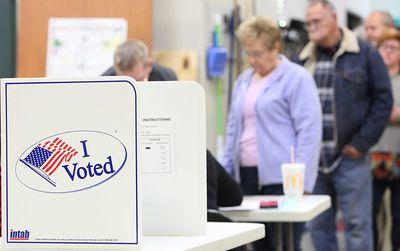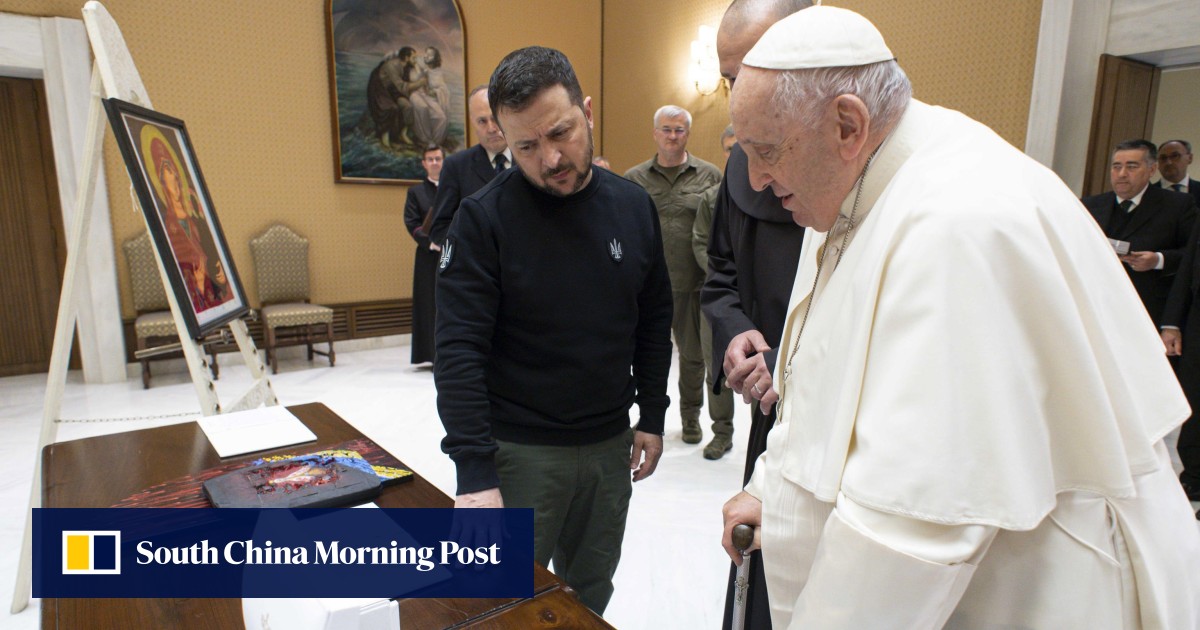Uber's Kalanick: Dropping [Project Name] Was A Costly Error
![Uber's Kalanick: Dropping [Project Name] Was A Costly Error Uber's Kalanick: Dropping [Project Name] Was A Costly Error](https://lc2.ca/image/ubers-kalanick-dropping-project-name-was-a-costly-error.jpeg)
Table of Contents
Travis Kalanick's leadership at Uber was a whirlwind of bold innovation and controversial decisions. One such decision, the abandonment of Project Zeus, a promising autonomous vehicle technology project, is now widely seen as a costly strategic error. This article delves into the reasons why dropping Project Zeus proved so detrimental to Uber's long-term goals and explores the significant financial and competitive implications of this decision.
H2: The Potential of Project Zeus: A Missed Opportunity
Project Zeus represented a significant leap forward in autonomous driving technology. Its ambition was to develop a fully self-driving ride-hailing system, potentially revolutionizing urban transportation. Dropping it meant Uber ceded ground to competitors who aggressively pursued similar initiatives, resulting in a substantial missed opportunity.
H3: Technological Advancement:
Project Zeus aimed to develop cutting-edge sensor fusion technology, advanced mapping capabilities, and sophisticated AI algorithms for autonomous navigation. Abandoning the project meant:
- Potential for significant cost savings in the long run through automation: Autonomous vehicles promise to drastically reduce labor costs, a major expense for ride-sharing services.
- First-mover advantage in a rapidly growing market: Early entry into the autonomous vehicle market would have given Uber a significant competitive edge.
- Enhanced brand image as a technological leader: Success with Project Zeus would have solidified Uber's reputation as a pioneer in transportation technology.
H3: Competitive Landscape:
The decision to discontinue Project Zeus left Uber vulnerable to competitors like Waymo and Cruise. These companies, with substantial resources and a continued commitment to autonomous vehicle development, rapidly gained market share and solidified their positions as leaders in the field. This resulted in:
- Loss of valuable intellectual property and engineering talent: Uber lost skilled engineers and valuable research data, hindering its future progress in the autonomous vehicle space.
- Increased competition from better-funded rivals: Competitors capitalized on Uber's retreat, expanding their market presence and further solidifying their dominance.
- Difficulty catching up in the autonomous vehicle race: Reclaiming lost ground in this rapidly evolving sector is proving to be a monumental challenge for Uber.
H2: Financial Implications of Abandoning Project Zeus
The abandonment of Project Zeus resulted in both direct and indirect financial losses, significantly impacting Uber's bottom line and investor confidence.
H3: Direct Costs:
The substantial investment already made in Project Zeus was essentially written off. This included:
- Details on the financial investment in Project Zeus (hypothetical, as exact figures may not be publicly available): Estimates suggest hundreds of millions of dollars were invested in research and development, infrastructure (testing facilities, vehicle fleets), and personnel.
- Costs associated with laying off employees involved in the project: Severance packages and retraining costs added to the overall financial burden.
- Loss of potential revenue streams from the project's eventual success: The projected revenue from a successful autonomous ride-sharing service was lost.
H3: Indirect Costs:
Beyond the direct financial outlay, the failure to capitalize on Project Zeus led to a multitude of indirect costs, including:
- Lost potential revenue from autonomous ride-sharing services: This represents a substantial loss of future earnings and market share.
- Decreased investor confidence and a negative impact on Uber's stock valuation: The abandonment of such a high-profile project damaged investor trust, potentially affecting Uber's overall valuation.
- Damage to Uber's reputation as a forward-thinking technology company: The decision cast doubt on Uber's ability to execute complex technological projects.
H2: Kalanick's Leadership and the Decision-Making Process
The decision to abandon Project Zeus was intrinsically linked to Travis Kalanick's leadership style and the prevailing internal and external environment.
H3: Internal Factors:
Several internal factors likely contributed to the decision:
- Analysis of Kalanick's leadership style and its influence on decision-making: Kalanick's aggressive and sometimes impulsive approach may have led to a hasty decision to cut losses.
- Potential internal conflicts that may have impacted the project's fate: Disagreements among executives regarding resource allocation or the project's feasibility could have played a role.
- Evaluation of the strategic rationale (or lack thereof) behind the decision: A lack of clear communication and a poorly defined strategic rationale may have contributed to the project's demise.
H3: External Factors:
External pressures also influenced the decision:
- Regulatory challenges related to autonomous vehicle technology: The complex and evolving regulatory landscape surrounding self-driving cars presented significant hurdles.
- Unexpected technological roadblocks encountered during development: Unforeseen technical challenges may have led to cost overruns and delays, prompting the decision to abandon the project.
- Changes in the market landscape that made Project Zeus less attractive: Shifting market dynamics, such as increased competition or changes in investor sentiment, could have influenced the decision.
3. Conclusion:
Uber's decision to abandon Project Zeus under Travis Kalanick's leadership serves as a cautionary tale. The substantial financial and competitive implications highlight the importance of careful planning, thorough due diligence, and a long-term perspective when investing in innovative technologies. The abandonment of Project Zeus underscores the need for perseverance and strategic adaptability in the face of challenges. Don't repeat Uber's mistake – carefully evaluate your high-risk, high-reward projects and avoid prematurely abandoning potentially game-changing initiatives.
![Uber's Kalanick: Dropping [Project Name] Was A Costly Error Uber's Kalanick: Dropping [Project Name] Was A Costly Error](https://lc2.ca/image/ubers-kalanick-dropping-project-name-was-a-costly-error.jpeg)
Featured Posts
-
 Trumps Winning Coalition Signs Of Fracture
May 19, 2025
Trumps Winning Coalition Signs Of Fracture
May 19, 2025 -
 Braves Fight For The Nl East A Realistic Look At Their Playoff Odds
May 19, 2025
Braves Fight For The Nl East A Realistic Look At Their Playoff Odds
May 19, 2025 -
 Ufc Vegas 106 A Comprehensive Guide To Burns Vs Morales Odds And Predictions
May 19, 2025
Ufc Vegas 106 A Comprehensive Guide To Burns Vs Morales Odds And Predictions
May 19, 2025 -
 Haalands Hat Trick Inspires Norways 5 0 World Cup Qualifying Win
May 19, 2025
Haalands Hat Trick Inspires Norways 5 0 World Cup Qualifying Win
May 19, 2025 -
 Reconciliation At The Vatican Vance And Zelenskiy Shake Hands
May 19, 2025
Reconciliation At The Vatican Vance And Zelenskiy Shake Hands
May 19, 2025
